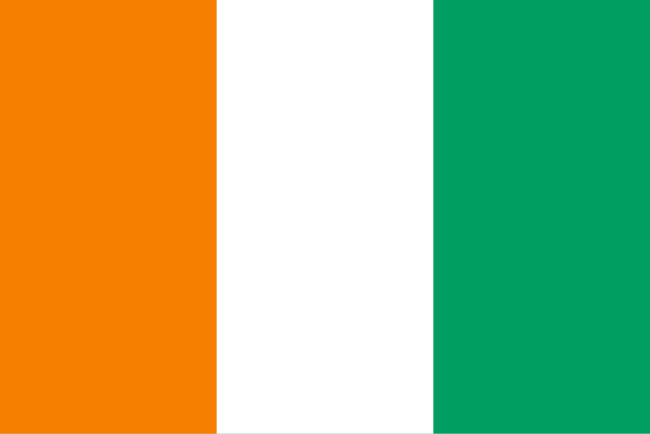With its official name, the Republic of Côte d’Ivoire is a country located in the western part of Africa. The country’s border neighbors are Mali, Burkina Faso, Ghana, Liberia, and Guinea. In the south of the country is boundered by the Atlantic Ocean. The country, whose capital is Yamoussoukro, has recently become a remarkable market. The name of the country is given by the Portuguese because there are many elephants in the region. The country has a surface area of 322,463 km² and consists of plateaus and plains.
Ivory Coast – Turkey Relationship
The relationship between Turkey and the Ivory Coast started to develop in 1963. As a result of the Ivory Coast trip by Turkey president and ministers in 2016, nine documents about education, security, economy, technology, and development have been signed.
Cote d’Ivoire in 2016, Turkey’s economy ministry has been identified as one of the target countries. The trade volume between the two countries was 442.1 million USD in 2017. Between the years of 2017-2018, Turkey has provided scholarships to 21 students from Ivory Coast.
Background at Ivory Coast
The country, originally discovered by the Portuguese, became part of the French West African colonial system in 1904. In 1946, with the decision to prohibit forced labor, a step was taken on the way to independence. The Ivory Coast gained an autonomous structure in 1956 and never considered independence until 1959. However, on August 7, 1960, it gained independence. Houphouët-Boigny ruled the country until 1993. There was a civil war in 1999 due to the economic hardship caused by the decline in cocoa wages. After these acts, the north and south of the country were separated from each other.
Economical in Ivory Coast
Côte d’Ivoire accounts for 40% of the total GDP of the West African Economic and Monetary Union (UEMOA) with its rich natural resources and foreign investments. The economy continues to recover after a military coup between 1999 and 2011 and the economic crisis.
Agricultural activities are one of the most common branches of the economy in the country. Export revenue from agricultural products constitutes 70% of total export revenue. Coffee, cocoa, banana, palm kernel, corn, rice, cassava are among the most grown products.
The country’s economy continues its efforts to reduce financial imbalances to maintain its rapid growth rate and make it more inclusive. It is thought that the elections to be held in October 2020 will create uncertainty in economic investments and affect private investments.
General Informations of Ivory Coast
Climate: Humid Tropical Climate.
Population: 24.29 Million (2017)
Ethnic Groups: Kwa(42.1%), Kru(11%), Voltaics (17.6%), Mande (26.5%)
Languages: French (official), Baoulece, Dioulanca
Religions: Islam (40.2%), Christianity (38.7%)
Natural Resources of Ivory Coast
Iron, Copper, Nickel, Phosphate, Bauxite, Cobalt, Cocoa
Agricultural Products of Ivory Coast
Cocoa, Cotton, Rubber, Coffee
Industry in Ivory Coast
Foodstuffs, Beverages, Wood Products, Oil Refinery, Gold, Automotive Installation, Building Materials, Electrical
Exports Partners of Ivory Coast
Ghana, Belgium, Germany, Nigeria, Netherlands, Gabon, Germany, USA
Imports – Partners of Ivory Coast
Nigeria, France, China, Bahamas
Currency of Ivory Coast
Western Arfika Franc (XOF)
Energy in Ivory Coast
Ivory Coast has one of the best energy infrastructures in the region. According to the National Development Plan, by 2030, the target of 4000 megawatts was set. The government said it would privatize energy distribution by 2020.
The country, which supports many energy sources, continues to search for oil and gas and continues to support solar energy. The government encourages the private sector to focus on hydropower projects for renewable and cheaper electricity generation. Energy products that are urgently needed and have potential in the Ivory Coast;
New Plant Equipment and Related Systems;
- Process Automation and System Control Equipment
- Gas Energy Technologies
- LNG Supply and Re-Gasification of Systems
- Renewable Energy Solutions
- Energy Efficiency and Demand Side Management
- Transmission and Distribution Equipment
Agriculture Sector in Ivory Coast
Since 75 percent of the national territory is arable land, it has great agricultural potential. They are currently selling raw or unprocessed agricultural products. Ivory Coast is the largest cashew producer in the world. Recently, various initiatives in the production of alcoholic and non-alcoholic beverages and meat have gained importance.
Building and Construction in Ivory Coast
The housing need in the country increases by 50,000 per year. Currently, the total housing needs range from 400.00 to 600,000 units. Between 2016 and 2017, 40.5% of the construction equipment was imported from the USA. With the ever-increasing demand against cement, cement factories have started to be established in the country.
Telecommunication companies, including mobile phone companies and internet providers, continue to make significant investments in infrastructure, facilities, and equipment.
CENTER FOR AFRICAN STUDIES
Center for Africa Studies (AFRAM) which located in Ankara, is an organization facilitating under the administration of African Affairs Council (AFAC). It makes various researches about Africa to enhance economic and cultural bounds between Africa and Turkey. AFRAM’s publishings has been shared with different institutions as they require to obtain.
AFRICA OBSERVATORY
Africa Observatory is one the publishing of AFRAM and it has been published each two weeks. It has been delivered to different institutions via e-mail.






